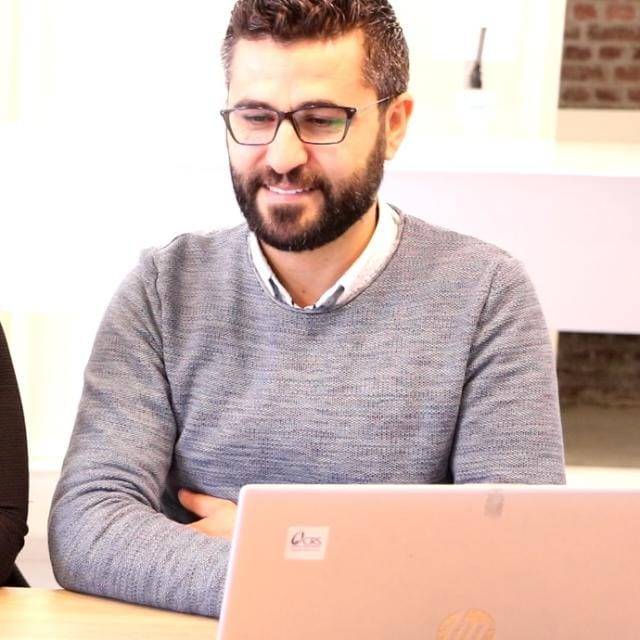The story of my uncle, Brigadier General Hassan Muhammad Mustafa Al-Ajrami, is not merely one of individual heroism, but a saga woven into the tapestry of Palestine’s enduring struggle for liberation. Born on 1 December, 1951, amidst the harsh realities of the Jabaliya refugee camp, my uncle’s early years were steeped in the bitter legacy of his family’s forced displacement from Bir Seb’a in 1948. Their journey into exile was not one of choice but of necessity, as the specter of armed coercion loomed large, casting a shadow over their once tranquil lives and compelling them to seek refuge amidst the desolation of Gaza’s refugee camps.
Despite the adversity that permeated his surroundings, my uncle’s spirit remained unbroken, his resolve unyielding in the face of overwhelming odds. It was within the confines of UNRWA schools and later at Al-Faluja Secondary School for Boys that he found sanctuary amidst the chaos, his thirst for knowledge serving as a beacon of hope amidst the encroaching darkness of occupation.
However, it was not merely academic pursuits that occupied my uncle’s thoughts during his formative years; it was the clarion call of resistance that beckoned him. In 1969, at the tender age of 18, he heeded the summons of the Palestinian Liberation Organisation (PLO), pledging his allegiance to the cause of Palestine’s freedom and embarking on a journey that would forever alter the course of his life.
His decision to join the ranks of the resistance did not go unnoticed by the occupying Israeli forces, who viewed him as a threat to their hegemony over the occupied territories. Thus began a relentless game of cat and mouse, with my uncle and his compatriots forced to navigate the treacherous terrain of occupation amidst the constant threat of arrest, torture, or worse.
READ: Hamas requests ICC intervention after latest Israeli execution video
Yet, in the crucible of conflict, my uncle’s mettle was tested and found to be unbreakable. Together with his brethren, he waged a valiant struggle against the forces of oppression, carving out pockets of resistance amidst the landscape of Gaza’s refugee camps. The early 1970s emerged as a golden era in the annals of Palestinian resistance, with my uncle at his vanguard, leading the charge against the encroaching tide of occupation with unwavering determination and unyielding resolve.
As the pressure mounted and the net of occupation tightened, many, including my uncle, found themselves compelled to seek sanctuary beyond the confines of Gaza. Jordan offered respite from the ceaseless pursuit of their oppressors, providing a temporary reprieve from the relentless cycle of violence and repression.
However, exile did little to dampen my uncle’s ardor for the cause. If anything, it only served to fuel his commitment to Palestine’s liberation, as he lent his expertise to the struggle in a new theatre of conflict. The tumult of the Lebanese Civil War provided the backdrop for my uncle’s next chapter of resistance, as he and his comrades stood as bulwarks against the tide of oppression, defending the sanctity of Palestinian camps amidst the chaos of conflict.
It was amidst the crucible of war that my uncle’s leadership qualities came to the fore, earning him the respect and admiration of his peers. His dedication to the cause was matched only by his thirst for knowledge, as he pursued further military education within the hallowed halls of the PLO Military College in Lebanon. Graduating with distinction in 1979, he embarked on a journey of self-improvement, undertaking additional courses internationally, from the rugged terrain of Bulgaria to the urban jungles of Cuba.
The dawn of a new era heralded the return of my uncle to his homeland, as the Palestinian National Authority took its first tentative steps towards sovereignty. With characteristic dedication, he assumed various roles within the Palestinian police force, serving with distinction until his retirement in 2008. Including as:
– Director of Beit Hanoun Police Centre
– Director of Jabalia Police Centre
– Director of Beit Lahia Police Centre
– Director of Nuseirat Police Centre
– Director of Emergency Administration
– Director of Border Police
Post-retirement, my uncle’s commitment to the cause remained undiminished, as he transitioned seamlessly into a role as a legal advocate, championing the rights of Gaza’s youth with the same fervor that had defined his military career. During his work in the Palestinian police force, and when he was 52 years old, he was determined to complete his university studies with his sons. He joined the Faculty of Law at Al-Azhar University of Gaza, graduating in 2007.
Yet, it was amidst the somber backdrop of Israeli aggression that Al-Ajrami’s journey reached its poignant denouement. On 11 March, 2024 – the first day of Ramadan – as the skies above Gaza darkened with the smoke of conflict, Al-Ajrami breathed his last, had a heart attack, and was transferred to the Gaza European Hospital in the east of Rafah, his spirit finally finding reprieve from the trials and tribulations of a lifetime devoted to Palestine’s cause.
In death, as in life, Brigadier General Hassan Al-Ajrami stands as a towering symbol of resilience and defiance, a beacon of hope amidst the encroaching shadows of oppression. His legacy endures as a testament to the unyielding spirit of the Palestinian people, a reminder that even in the darkest of times, the flame of resistance burns eternal.
As such, my uncle engaged in various confrontations against Israel across different locations and moments. Ultimately, he died of a heart attack, following a journey marked by displacement that took him through Al-Nuseirat refugee camp, Deir Al-Balah village, with Rafah serving as his final destination.
READ: Ex-chief of staff: Netanyahu leading Israel ‘from bad to worse’
The views expressed in this article belong to the author and do not necessarily reflect the editorial policy of Middle East Monitor.









